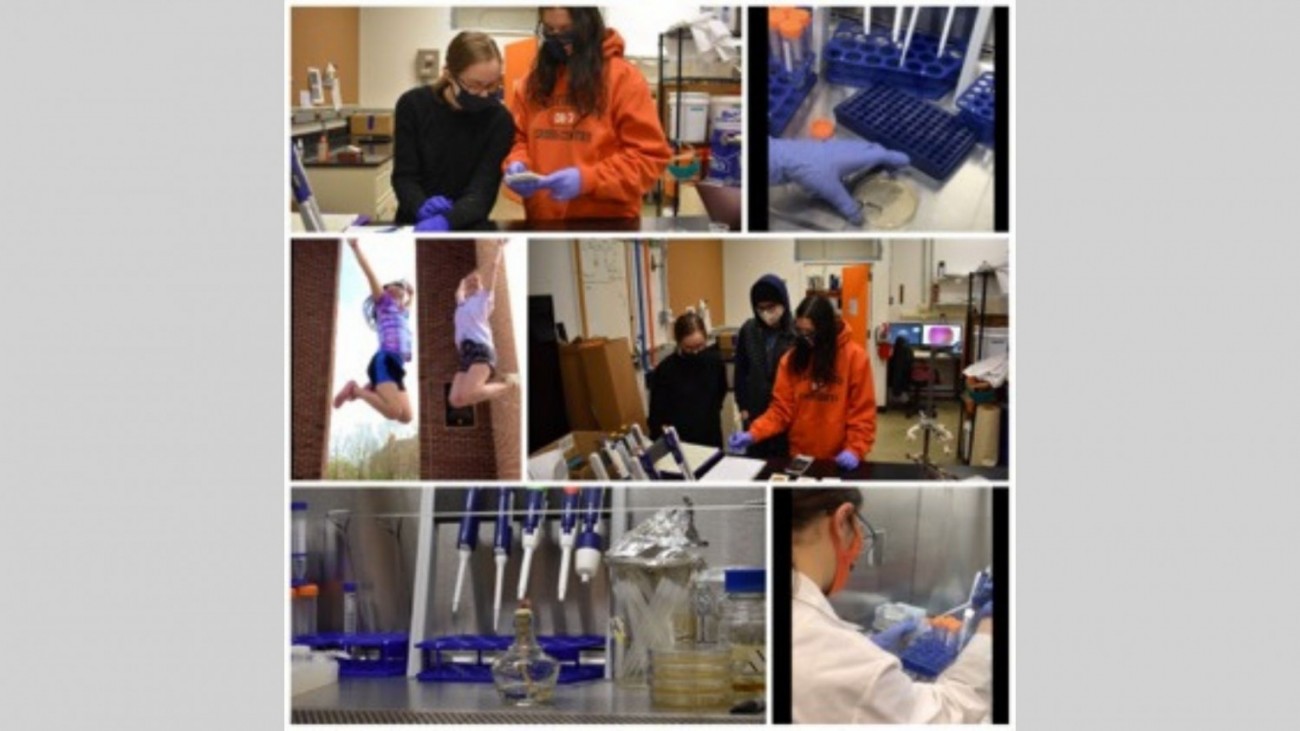Stopping Salmonella in its Infectious Tracks, Essential Oil Style!

Woah – you must have read the title of this blog post and thought, “Say what? Essential oils can kill bacteria?” Well, our Global Food Security Scholar Research Project – investigating the effectiveness of essential oils at inhibiting the growth of Salmonella in water – provides evidence to support this claim.
During the fall and spring semesters of the 2021-2022 academic school year, my research partner and fellow agricultural and biological engineering (ABE) junior Fina Healy and I conducted experiments in Dr. Paul Davidson’s research lab, testing the effectiveness of oregano, thyme, lavender, lemon, basil, and various combinations of them on the growth of Salmonella in water. We choose to test Salmonella because of its widespread and frequent contamination of food and water worldwide.
Ultimately, we found that oregano and thyme killed all Salmonella colonies even at low concentrations. Basil, lavender, and lemon were less effective than oregano and thyme as they still showed bacterial growth at higher concentrations. Interestingly, lemon plus basil showed the greatest inhibition followed by basil plus lavender, and lemon plus lavender combinations. The data from our experiments indicate that essential oils have great promise in disinfecting the food and water we consume and can provide a good alternative to common antibacterials like bleach.
Learning the experimental protocol for preparing agar plates, creating bacterial broth, serial diluting, and counting colonies was super fascinating and helped me and Fina hone our laboratory skills. Further, through GFSS, we had the opportunity to write an abstract, produce a video regarding our research, and present it at the Within Reach: Zero Hunger conference this past Spring. We also plan to write a manuscript of our results and publish it in a scientific journal this summer. Overall, not only has the GFSS program been a fantastic chance to gain technical knowledge and lab skills, but it has also facilitated the development of our communication/writing skills through professional development. And an added plus – this project has allowed us to contribute scientific findings to help reduce food insecurity!
Katie Koprowski, a student in agricultural and biological engineering, worked in Paul Davidson’s research lab testing the effectiveness of oregano, thyme, lavender, lemon, basil, and various combinations of them on the growth of Salmonella in water.
Through the Global Food Security Interns program, ACES International is supporting talented and motivated undergraduate students to work with ACES faculty or staff on food-security-related projects in low and middle-income countries. In early 2021, six undergrads received funding as global food security interns.